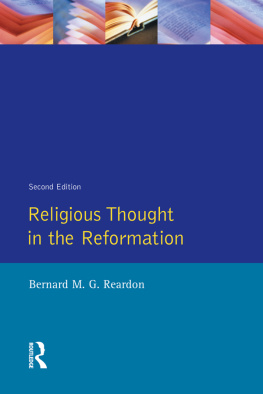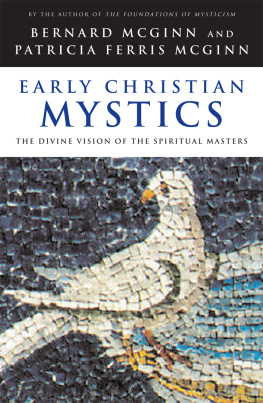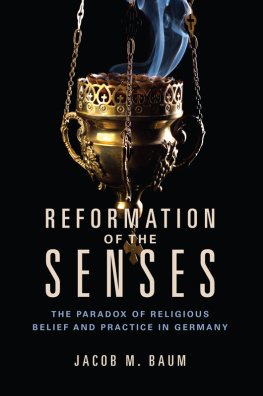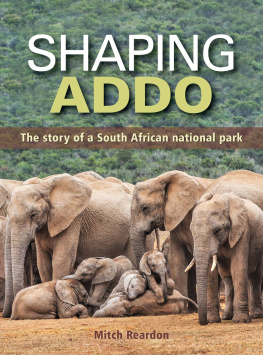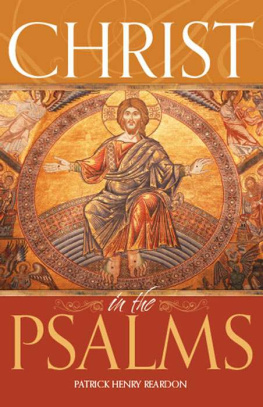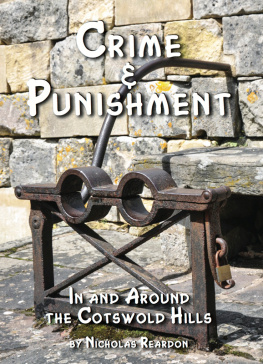RELIGIOUS THOUGHT IN THE REFORMATION
RELIGIOUS THOUGHT IN THE REFORMATION
Second edition
Bernard M. G. Reardon
First published 1981 by Longman Group Limited
Second edition 1995
Published 2013 by Routledge
2 Park Square, Milton Park, Abingdon, Oxon OX14 4RN
711 Third Avenue, New York, NY 10017, USA
Routledge is an imprint of the Taylor & Francis Group, an informa business
Copyright 1981, 1995, Taylor & Francis.
All rights reserved. No part of this book may be reprinted or reproduced or utilised in any form or by any electronic, mechanical, or other means, now known or hereafter invented, including photocopying and recording, or in any information storage or retrieval system, without permission in writing from the publishers.
Notices
Knowledge and best practice in this field are constantly changing. As new research and experience broaden our understanding, changes in research methods, professional practices, or medical treatment may become necessary.
Practitioners and researchers must always rely on their own experience and knowledge in evaluating and using any information, methods, compounds, or experiments described herein. In using such information or methods they should be mindful of their own safety and the safety of others, including parties for whom they have a professional responsibility.
To the fullest extent of the law, neither the Publisher nor the authors, contributors, or editors, assume any liability for any injury and/or damage to persons or property as a matter of products liability, negligence or otherwise, or from any use or operation of any methods, products, instructions, or ideas contained in the material herein.
ISBN 13: 978-0-582-25959-1 (pbk)
British Library Cataloguing-in-Publication Data
A catalogue record for this book is available from the British Library
Library of Congress Cataloging-in-Publication Data
Reardon, Bernard M. G.
Religious thought in the Reformation/Bernard M. G. Reardon. 2nd ed.
p. cm.
Includes bibliographical references and index.
ISBN 0-582-25960-6 (hard). ISBN 0-582-25959-2 (pbk.)
l.| Theology. Doctrinal History 16th century. 2. Reformation. I. Title.
BT27.R36 1995 | 9436908 |
230.09031dc20 | CIP |
AC |
CONTENTS
It is the function of learning to assert what is known, and to leave perverse ingenuity steadily alone.
Mandell Creighton
Of the making of books on the Reformation there would seem to be no end. An author therefore who presents the reading public with yet another should be prepared to state his reasons for so doing. My own may be given readily. Most historians, in treating of this subject, are concerned, very properly, with the course of events and the persons who figured in them: how those events cohere and what were their causes, and the parts played in them by human agents, whether or not such roles were acted out either in full consciousness of motive or with much inkling of the possible outcome. The task thus envisaged is a highly complex one and the scholar who embarks on it, if he encompasses the period as a whole, must follow multiple lines of research and not just confine himself to arbitrarily selected data. There is little reason for wonder, then, that in dealing with a movement like the Reformation simplistic views, content merely to highlight the corruptions of the medieval church or the evangelical vision and single-minded courage of a Martin Luther, should appear inadequate. Nowadays especially the economic and social conditions, as well as the pressures and strains of political ambition, must be taken fully into account. On the face of it of course the Protestant Reformation was a religious revolution, but mens religious beliefs and aspirations are certainly not undetermined by historical circumstances, and changes that affect the life of an epoch have to be seen in a wide context. Nevertheless, in the events which the history of western Europe in the sixteenth century recalls, religion was a powerful if not a dominating factor. Why else should we continue to speak of the Reformation at all if the reform and renewal of religious faith and practice which then occurred be parenthesized or accorded only passing notice? My purpose here, rather, is to concentrate on the very things such parenthesis would be likely to contain and to examine them in their own right and for their own sake. In short, my concern is with the religious, not to say more strictly theological, aspect of the movement, on the grounds that, all too often, this receives less attention from historians than might fairly be expected, even when allowing for their other legitimate interests or necessary preoccupations.
Thus the question I have sought to answer is: What in fact were the religious convictions which the reformers upheld, taught, struggled for and sometimes died for? To a Luther or a Calvin, to a Zwingli, a Melanchthon or a Cranmer, these matters were of absolutely primary significance, since the whole meaning of life, as they saw it, turned on them. To suppose that because in a secularist age, in which religious principles are likely to be equated at best with a few simple ethical precepts, the notions of justification by faith alone, or predestination to eternal bliss or perdition, or the living presence of Christ in the eucharist may have little intelligibility, is no excuse for neglecting or minimizing their historical importance, even apart from the theologians concern with their truth.
Thus what I have set out to do is to examine the teachings of the principal reformers in turn, but also in more detail than is commonly found in histories either of the Reformation itself or of Christian doctrine generally. Many full-length studies of the individual leaders and their beliefs are indeed available, but these do not as a rule supply the reader, and more especially the younger student (with much already on his academic plate), with the kind of synoptic view which is probably what he feels himself to be most in need of. The only work known to me which attempts anything of the sort is Henry Strohls La pense de la Rforme (Neuchtel and Paris, 1951). Even so, the method he adopts that of treating theological doctrines or themes in systematic sequence is one which I have not seen fit to use. But although I have aimed to do more than offer a mere sketch of my subject, that subject is a very large one and I have still been obliged to compress severely. The bibliographical references, both in the notes and in the chapter bibliographies at the end of the book, are sufficiently ample for the reader who wishes to pursue his study into greater depth to find adequate guidance from them.
The world-historical significance of the Reformation has not lessened with the passing of time. Not only does it mark a new epoch the Protestant era in the history of Christianity, but modern civilization itself may look back to it for its beginnings. With the break-up of the western church European culture was to be freed, willy-nilly, from the control of a unitary religious tradition subject to a single ecclesiastical authority. Not that it was the intention of any of the reformers that temporal affairs should be secularized, as the word is used nowadays. Protestant society was still Christian society and Calvins holy commonwealth of Geneva can be cited as a prime example of what a community deemed to have been ordered in accordance with the word of God ought, in Protestant eyes, to aspire to be. But the breach with the past which the sixteenth-century religious upheaval caused was such as to render it possible for new intellectual and social forces, to which the blanket-term Renaissance is conveniently affixed, gradually to secure the emancipation of the secular life from ecclesiastical tutelage. Christendom remained a reality, but its definition became ever less precise as a growing movement of autonomy revealed itself over large areas of human interest and endeavour. In fact, the Reformation and Renaissance are difficult to correlate in any positive way. In important respects the former was a reaction, medieval in ethos, against certain evident tendencies of the contemporary world. If Erasmus was a typical Renaissance figure then the attitude towards him of both the reformers and the Catholic authorities is instructive in this way, in that both realized that he stood for the freedom of the questing human intelligence in a manner that each sensed as a threat to supernatural authority, however mediated.


